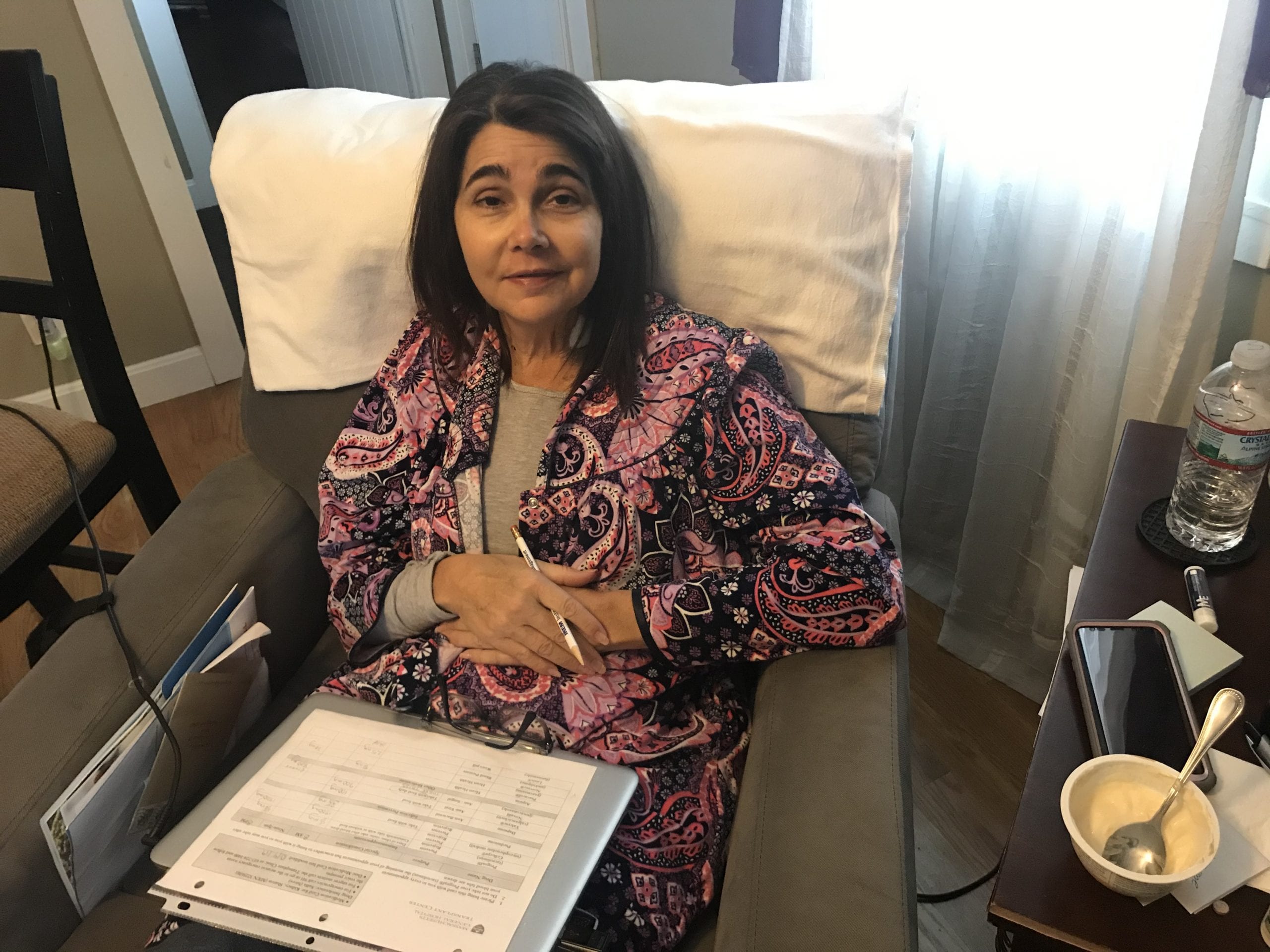PEABODY — One month after Sharon Kidney received a life saving heart transplant, the 49-year-old Lynn native is in no hurry to make plans for her new life.
“I’m taking one day at a time,”she said from the comfort of a reclining chair in her downtown home. “I’m hoping for another 20 years, but how I will spend them is a mystery for now.”
Earlier this year, her doctors at Massachusetts General Hospital said without a new heart she may not reach her 50th birthday. Last spring, she joined the nearly 3,800 patients nationwide waiting for a new heart. Doctors said there was no way of knowing when a heart would become available.
With that, she wrote her will and made final arrangements.
“Even with the surgery, there’s always a chance for death, so I had to be prepared,” she said. “It was, like everything is right now, a little surreal.”
But the wait for a new heart was less than three months. The statistics on survival are quite good: 88 percent after the first year, and 75 percent after five years, according to the Mayo Clinic.
One week after the surgery, despite hallucinations about people in her hospital room who weren’t there, Kidney was on the long road back. The day The Item visited, she was snacking on yogurt, got out of the recliner herself, and walked to the bathroom with some assistance.
Once a week since the surgery in September, doctors have taken a biopsy of the heart to check to see if her body was rejecting the new organ. It’s not.
Her parents, Philip G. Roy, 76, and Nancy Roy, 67, who came up from their Florida retirement home to help with their daughter’s recooperation, said they couldn’t be happier with the outcome of the surgery.
Kidney’s daughter, who declined to give her name, said she was in the waiting room for the late night surgery last month.
“When it was over, the doctor told me it went well and she can have visitors in a little while,” she said. “But I was crying, my hands were shaking, and I had an anxiety attack.”
Today, the family is closely monitoring Kidney and doctors say it will be a year before she can really begin her new life.
The property manager at Simon Cos. in Braintree was born with transposition of the great arteries (TGA). It’s a serious but rare heart defect in which the two main arteries leaving the heart are reversed, according to the Mayo Clinic. The condition creates a shortage of oxygen in blood flowing to the rest of the body. Without an adequate supply of oxygen-rich blood, the body can’t function.
The Centers for Disease Control and Prevention estimates about 1,250 babies, or 1 in 3,300, are born with TGA annually in the U.S.
Kidney, who attended St. Pius V School, St. Mary’s High School, and Bay State College, still faces financial challenges, Roy said, as the medical bills pile up. While heart transplant surgery is generally covered by insurance, life-saving medicines typically require a patient contribution.
The four anti-rejection drugs are expensive, and the co-pay is $2,500 a month, he said. As a result, the family launched a fundraising goal of $100,000. So far, they have raised $15,000. Tax-deductible donations in her name can be made to the National Foundation for Transplants. To donate online go to: give.transplants.org/goto/sharonkidney.
To send your gift by mail, make checks payable to NFT Massachusetts Transplant Fund, 5350 Poplar Ave., Suite 850, Memphis, TN 38119. Please be sure to write “in honor of Sharon Kidney” on the envelope and on the check memo line.

